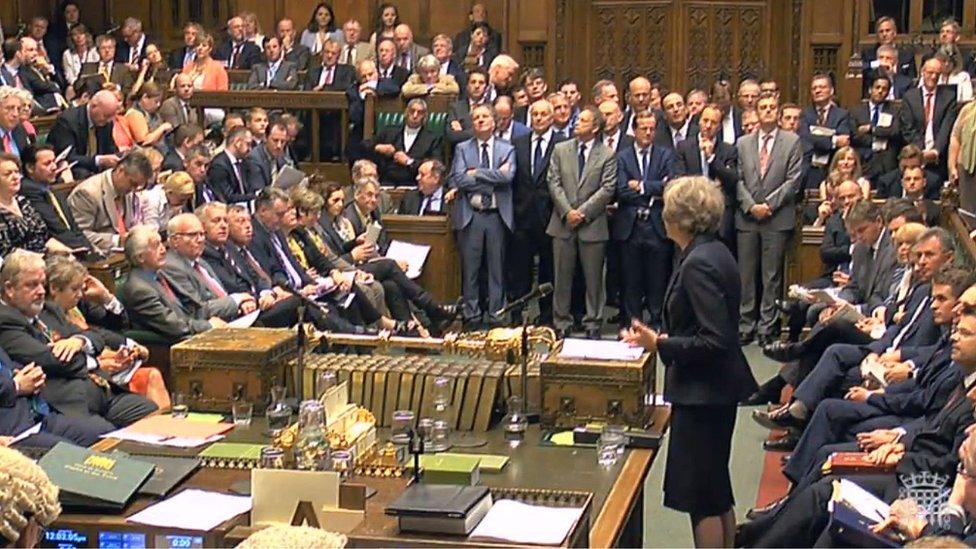Committee launches inquiry into number of women MPs
- Published

MPs have launched an inquiry into why there are not more women in their ranks amid fears boundary changes will make it even harder to get winnable seats.
The boundary changes will cut the number of MPs from 650 to 600.
Inquiry chair Maria Miller said cutting the size of the Commons should not come "at the expense of a representative, modern Parliament".
There are currently more men in the Commons - 458 - than the number of women to have ever won seats there.
Women currently make up 30% of the House of Commons, occupying 192 of the 650 seats.
Support networks
The boundary changes, which are due to come in to effect by the next scheduled general election in 2020, could increase competition for seats among would-be candidates, and could pit sitting MPs in the same party against their neighbours for the chance to stand for re-election.
The changes, brought in by the Conservatives, are meant to make elections fairer by ensuring all constituencies are roughly the same size, in terms of population.
The women and equalities committee committee will look at the potential consequences for female MPs and what parties are doing through their candidate selection processes to improve the gender balance in 2020 and beyond.
All the major parties have attempted to get more female candidates into winnable seats, with varying results.

How does the UK compare globally?
The UK ranks 48 out of 193 in terms of the proportion of women in a country's lower or single House (i.e. the equivalent of the Commons)
Rwanda tops the list with 63.8% female representation followed by: Bolivia (53.1%); Cuba (48.9%); Seychelles (43.8%); Sweden (43.6%) and Senegal (42.7%)
Bringing up the rear are Yemen, Vanuatu, Tonga, Qatar, Palau, the Federal States of Micronesia and Haiti- which have a grand total of 0% of female representatives
Globally, women make up just over 22% of parliamentary seats

Labour has used all-women shortlists and the Conservatives have set up support networks to help women through the often costly and time-consuming selection process.
Mrs Miller, the Conservative former minister who chairs the committee, said: "We need to see proper diversity in public life - an important part of this is making sure the House of Commons is representative of the nation at large.
"Encouraging women into politics is an important first step but much more could and should be done to improve the retention of women MPs."
'More representative'
The committee's inquiry will also look at the following areas:
What the government, political parties, Commons and the Independent Parliamentary Standards Authority could be doing to ensure better female representation in 2020 and beyond
Whether further changes can be implemented to improve retention of women MPs
It says it will also examine the recommendations by The Good Parliament report, which proposed "a blueprint for a more representative and inclusive Commons".
The committee is inviting written submissions to its inquiry which must be submitted by 12 September.
An initial set of proposed boundary changes will be published in September 2016, with a final recommendation to be made to Parliament by September 2018.